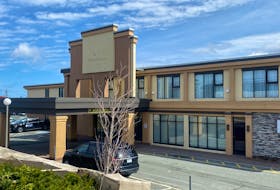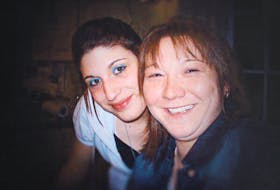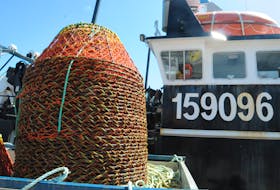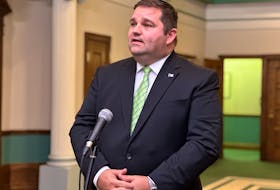ST. JOHN'S, N.L. — A parent has complained to the provincial government that elementary school children are too impressionable to be taught about inclusive education, and she doesn’t want “rainbow” symbolism in schools because of its specific connection to the lesbian, gay, bisexual and transgender, queer-plus (LBGTQ-plus) community.
The letter, as well as Education and Early Childhood Development Minister Brian Warr’s reply, was sent to The Telegram in response to an access to information request related to inclusive education.
The parent’s name was redacted in keeping with privacy rules.
“My concern is what my five- and seven-year-olds are being taught in school,” the woman wrote in a the letter, which preceded the new school year.
“They are being taught about marriage, about different romantic relationships/familial settings that children are a part of or a product of. My child, who is not yet able to think before he speaks, is being taught about transgender, bisexuality, homosexuality and more in their school and it is said to be part of the inclusive curriculum.”
The mother’s argument is that children are not developed or mature enough at an early age to understand the information, nor to know who they are.
“There is so much confusion amongst young children and teenagers alike because of the pressure to ‘be who you are,'” she said, suggesting that children’s interests change over time. "Why is it our educators would think our young children are capable of properly processing and understanding this information they are teaching as ‘inclusive education’ as it should be?”
The mother also suggested some teachers may be imposing their own views, and said parents at her children's school weren’t properly informed of what was to be taught.
“It appears there is no true inclusion being taught at our school and that this policy is giving school figureheads and their teachers the freedom to teach what inclusion is how they see it,” the woman wrote.
While not referring to the end of denominational schooling in so many words, she said the school system changes in the 1990s were pitched as necessary to define schools as a place for academic learning — math, science and English.
“And here we find ourselves in school systems where children are learning life through someone else’s experiences and teachings influenced by their own personal beliefs and goals, and not the child’s own experiences that are supposed to provide those lessons," the woman said.
She described the rainbow flags in her children’s school and said that symbol reflects the LGBTQ community only and is not inclusive of others.
She pleaded for a committee to review the inclusion policy.
“This is the education of our children, we deserve a voice in what is taught and all of us deserve what this policy is stated to be ensuring and that is inclusion of all — with no symbols, teachings, etc. that are blatantly associated and/or identified with a specific group of people,” she wrote.
In response, Warr said current curriculum is modelled on national and internationally accepted practices “to teach and foster academic skills, as well as respectful behaviour, acceptance of diversity and other social-emotional skills.”
Warr also said the department is supportive of inclusive curriculum “which helps develop citizens who are aware and accepting of diversity” and that teachers need autonomy to incorporate various resources. He referred the mother to the Newfoundland and Labrador English School District’s western regional office for further discussion.
The Newfoundland and Labrador English School District said in a statement Friday that inclusive education continues to be a priority for the district.
“All students have the right to a safe, inclusive, socially just education, no matter the gender, race, economic status, sexuality, national or ethnic origin, age, ability or other life factor — it is a tenet of the province’s safe and caring schools policy and grounded in the Human Rights Act,” the district stated.
“The district continues to strive to ensure such an environment is provided for every one of our students and staff members.”
[email protected]
Twitter: @BarbSweetTweets









